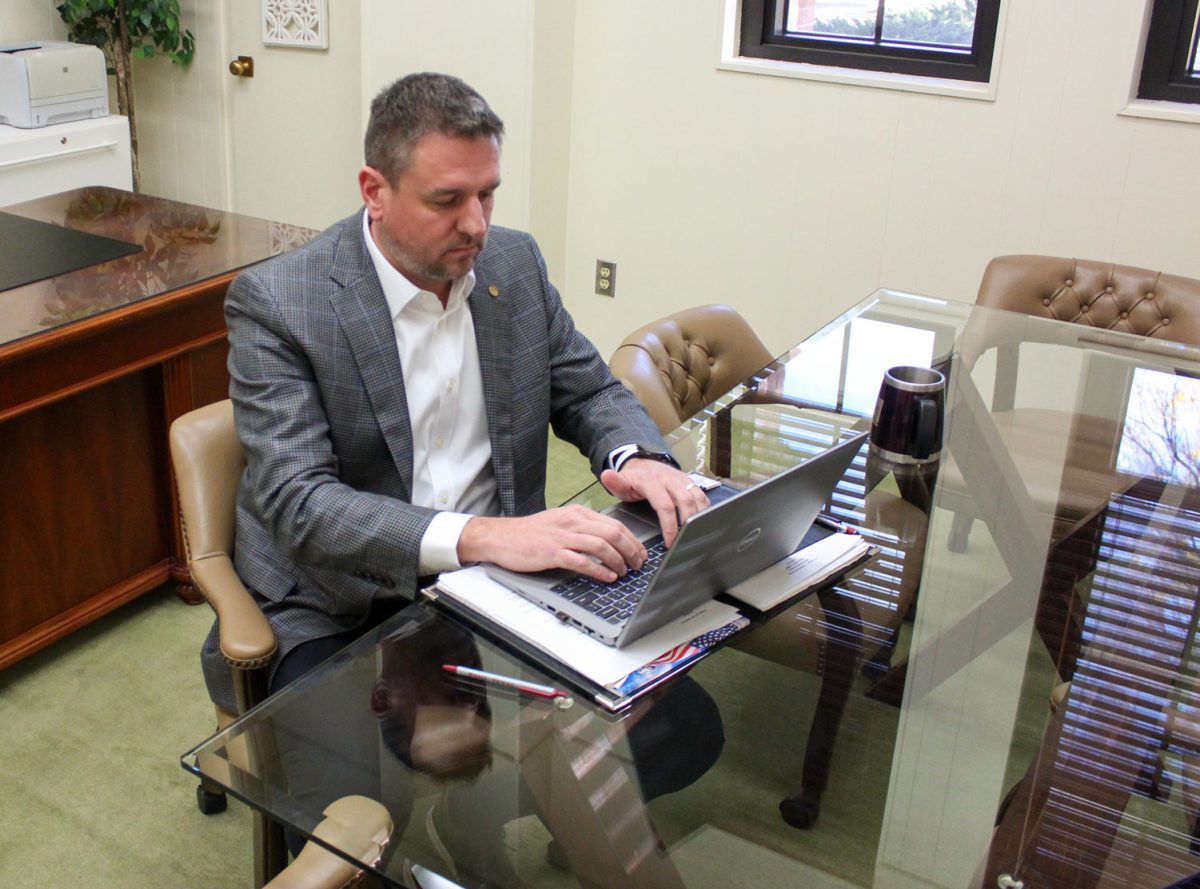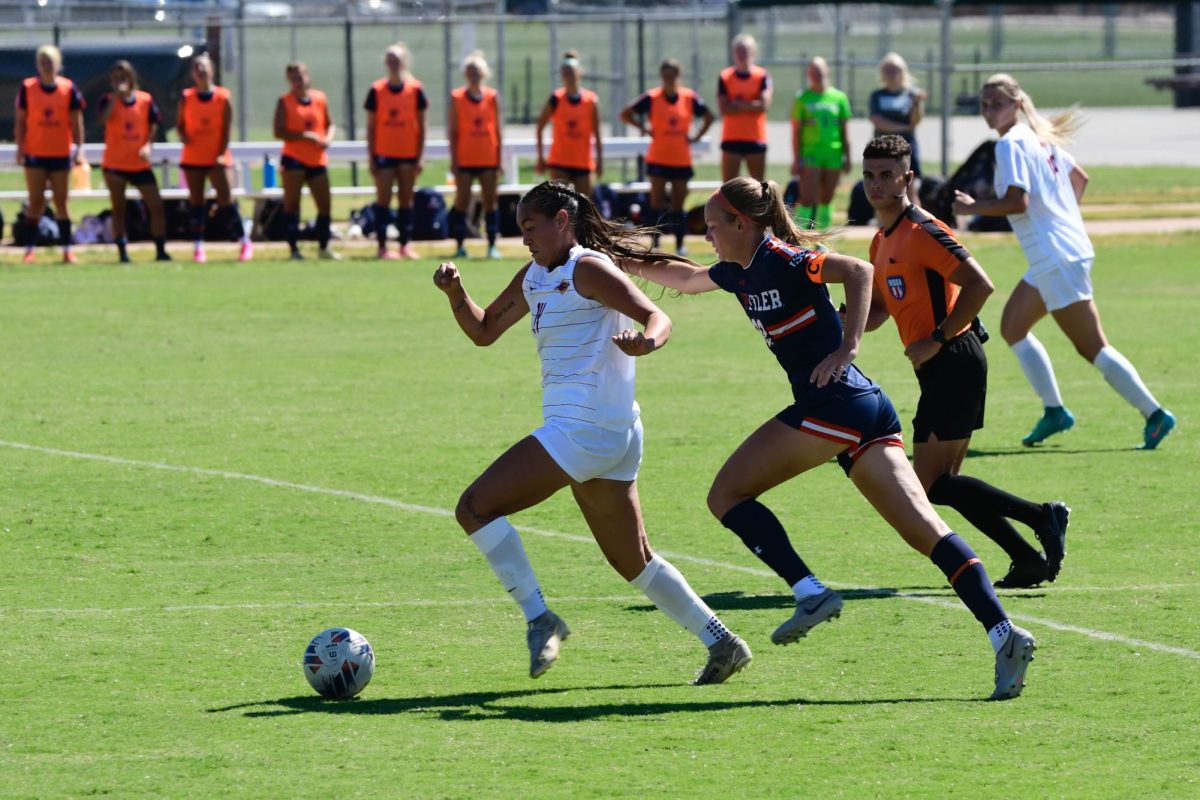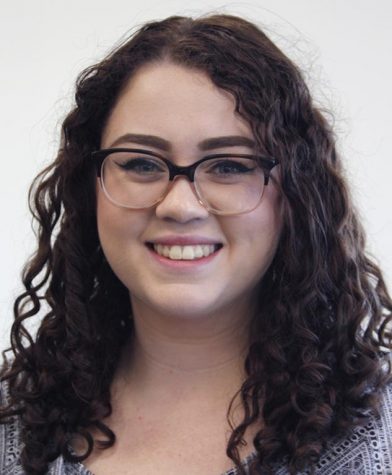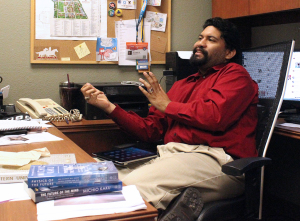
About the job
What does your job entail?
“We monitor all of the social medias and everything on campus. We try to be ahead of everything and educate the students, faculty, and staff on social media in general and new things coming out or new features. The big one was about a month ago when Instagram decided to allow multiple accounts, so we threw out a memo to the faculty and staff about it. We told everyone about the new Snapchat features and how to integrate that. We educated them on emojis, like what some mean rather than others. They don’t know what the eggplant or peach emojis mean, so we have to tell them, ‘Don’t use those emojis ever.’ It’s a lot of that kind of stuff. We also can send anything we see on social media to different departments, such as sending parking issues to the police or leak information to facilities.”
What does a typical day look like for you?
In morning: It starts with checking what was missed overnight, then Lopez looks at what the people are talking/posting about, he makes sure schedules are done for the day, and then he goes to explore campus.
“The morning is all about research and the afternoon is all about going around campus and finding out what we need to do. Usually around lunch I’ll stay around the Clark Student Center because there’s usually something around there that we can put up on social media.”
Evening: Lopez checks all the social media accounts again before leaving to make sure there isn’t anything he missed. He sets his schedule up for the next day. If there is an event that night then he sends out a Tweet to advertise the event. When the event starts, he will be there to cover it through social media.
Is it hard to balance your personal life with your work life?
“I’ve been in this field for quite a while, and you have to be everywhere at certain times. Everything works around the events, not around you. You just have to say, ‘okay, these hours I’m with family’ and designate time for your personal life. It takes a while to get to that point, but it will happen eventually.”
Do you act differently when talking to the president and when talking to students?
“No, you have to be yourself. If you’re not being true to yourself, then what’s the point? You treat everyone the same and don’t change for anyone.”
What are the best parts of your job?
“Being able to meet everyone and being outside half of the time. I like to be outside and being able to go places. Every day is different; I’m going somewhere different or meeting someone different. For example, a few weeks ago we had a photo shoot in the bell tower in the morning, then a photo shoot in the new dorm in the afternoon, so we’re going from one place to another with two different extremes.”
What are the worst parts of your job?
“The thing about social media in higher ed is that we are brand new. There’s been nobody before us for the majority of the time, so we’re trying to take baby steps. Everyone is trying to learn off of each other. We went through that whole Yeti fiasco last year, so we had to deal with that and learn for next time. I think the hardest part is trying to figure out what fits for your university and what other universities are trying. Everyone has to keep each other in the loop because it’s always changing.”
Does MSU monitor the mwsu.snaps account?
“Yes, we do. There’s no way for us to check who’s running it, but Snapchat is putting a lot of funding behind creating a more personal route so all of a sudden, you may find that the owner of those snaps are going to be revealed.”
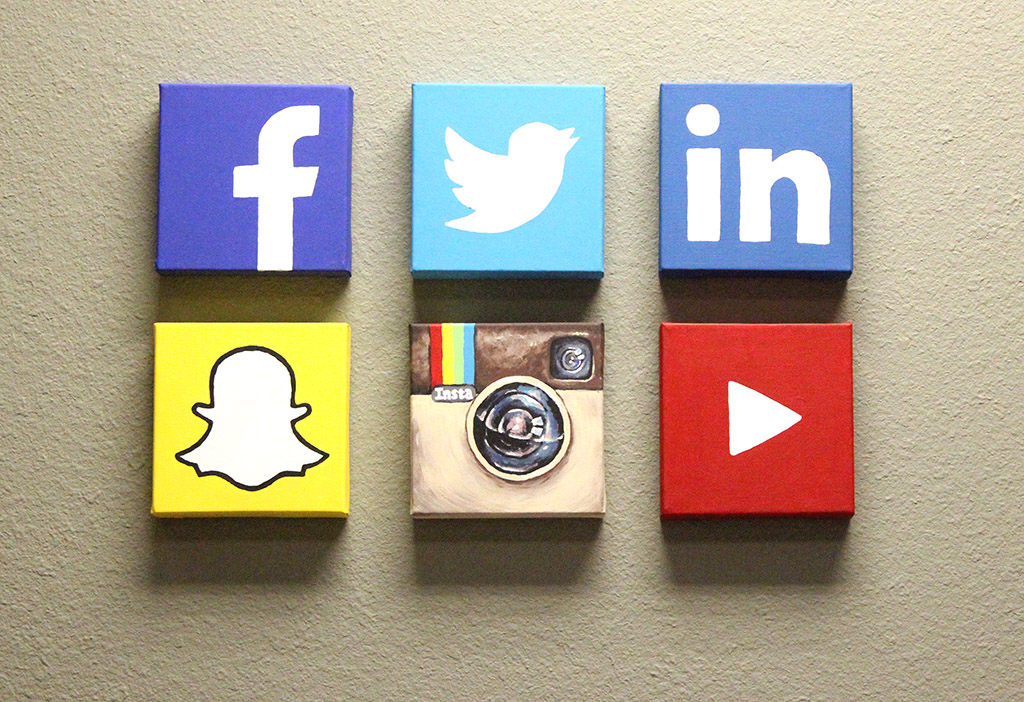
Behind the scenes
Favorite spot on campus: Inside the Bell Tower
“You can see the whole campus from there. I’ve been there a few times, and that’s always been my favorite spot. Not only that, but just the history behind the bells makes it even better.”
Favorite MSU tradition: Homecoming boat races
“It’s very unique to our university. It’s fun to see the cleverness and the attempts to make it across the lake.”
Favorite social medium: Twitter
“A lot of professionals are on there. I can keep in touch with other professionals in my field and we can share ideas. It’s easier through Twitter because I always see their stuff, and with other networks, I don’t.”
Tips for college students
What are some tips you have for college students?
“Develop a sense of humor. That’s super important for social media. Keep posting and keep sharing because it will help you form a presence on the Internet.”
How can students use social media to further their job prospects and make other connections?
“It’s kind of the same way with what we do with Twitter. Every profession has a hashtag. For example, ours is Higher Ed Social Media, or #HESM. For others, you have to find which one is the correct one, and from there you can start meeting other people who are in your exact same profession.”
What should students be wary of when using social media?
“There’s no such thing as deletion. Especially with Snapchat, because there’s always a way for it to be hacked. While your story is gone within 24 hours, it is staying somewhere for 24 hours, and within that time you could be the lucky one to get hacked that day. I mean, we all saw what happened with Ashley Madison, so it is possible. It can stay on even longer if you’ve sent a picture to someone and they haven’t opened it. If they haven’t opened it for five days, then it’s going to stay on the server for five days before it’s deleted.”
Do employers actually look at Facebook?
“I can tell you that they do. Even if they don’t say they do, they still do, which is funny because the stats for people looking at Facebook are not very high, but we all know they do. Whenever you’re checking someone out, the first thing you do is look at their profile.”
What are some Twitter tips?
“Take it off of private. Twitter is very open and it’s all about sharing information with professionals and your ideas, especially when it’s 144 characters.”
About social media
How has social media impacted us?
“It has created more communication. It’s kind of created more noise. Growing up, we had all of the commercials, all of the advertisements on billboards and busses, but now social media adds a new element to that, and now that the corporations have gotten into it, there’s more noise than ever. So you’re seeing more creativity than ever before because you have to stand out.”
How will social media impact us in the next five years?
“It’s going away from the community platforms and more to the messaging platforms. We’re seeing that right now with the growth of Snapchat, GroupMe, Whatsapp, and those kinds of apps. It’s going away from the Facebook and Twitter kind of thing because people are tired of seeing all the spam. Snapchat is kind of a hybrid of both community and messaging platforms. You can control what you click; you don’t have to see your friend’s 200 second story, you can just skip it.”
Why do you think social media is important?
“It’s the way we communicate nowadays. We don’t talk on the phone anymore, we go and see what people are doing on social media. Even texting is a form of that, because it’s fast and easy.”
Why do you think LinkedIn is becoming popular for employment purposes?
“I don’t think it’s becoming popular. I think people finally discovered it. LinkedIn is actually on the decline, but it is still the best area to create a public profile that integrates well with Google. You’ll see most of the recruiters will use LinkedIn to find you, so it’s important for students to have one. It’s one of the first things to pop up when you Google your name.”
Is gif pronounced “gif” or “jif?”
“I got to meet Alex Chung at a conference I went to, who is the head of Giphy, and there was a whole argument about the pronunciation for about 20 minutes. The original translation was ‘jif’ because the guy who invented it like Jiffy peanut butter, but no one agreed with him so they called it ‘gif.’ Since Chung owns the biggest gif site, he’s designated it as ‘gif.'”
Check out the rest of the series:
Social media is more than retweets and friend counts
Digital presence can make, break job searches
Networking: If You’re Not Doing It, You Should Be









